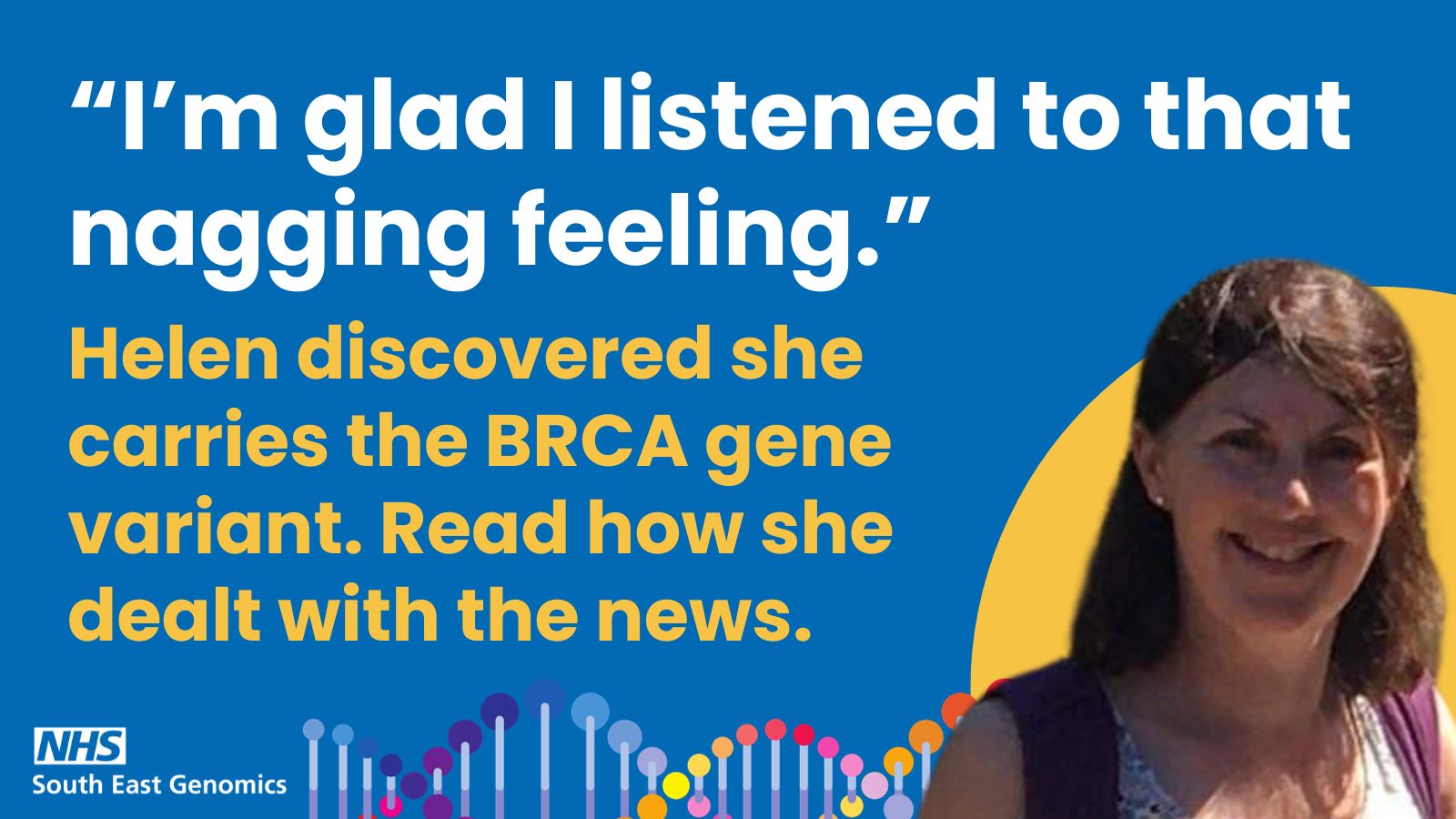
Helen’s grandmother died from breast cancer at 48, and then her maternal auntie also passed away when she was just 44. Although Helen’s Mum didn’t have cancer, she couldn’t shake a nagging feeling that something wasn’t right.
“I was 19 when my Aunt died and I remember thinking, is this what I’ve got to look forward to?!”
That nagging doubt never went away, so when Helen turned 40, she went to her GP and asked for genetic testing. She had to insist, but eventually she was referred to the Family History Clinic.
“They asked me a few questions but as soon as I said my Mum hadn’t had breast cancer, they just sent me away telling me I wasn’t at risk. They didn’t ask me if she had had a hysterectomy which I now know would have reduced her risk of developing cancer.”
“It just didn’t feel right so I paid for a private mammogram. That £50 probably saved my life!”
The mammogram picked up a small lump which was confirmed as breast cancer by Maidstone Hospital. Luckily it had been picked up early. Things started to move quite quickly after Helen mentioned her family history to the consultant.
“Finally someone listened to me, and within two days I was at Guys Hospital for genetic testing. That’s when it was confirmed I had the variant of the BRCA gene. I’d never heard of it before but it made so much sense.”
This diagnosis meant that Helen had a double preventative mastectomy, followed by chemotherapy and finally she had her ovaries removed.
Helen had already had her family and her daughter was 16 when she was going through treatment.
“She probably saw me more than anyone during my treatment because she was at home studying for her exams. So she was determined to get herself tested as soon as she turned 18. She wanted to know so she could make informed choices for her future.”
Helen’s daughter tested negative for the BRCA gene variant but her son is positive. Having recently got married, he has been having conversations about fertility treatment to avoid passing the BRCA gene variation onto any future children.
Both Helen and her children had genetic counselling at Guys to ensure they fully understood the impact of the testing. Despite the counselling, Helen felt very alone after she was diagnosed.
“When I had my ovaries removed, the nurse mentioned the BRCA Kent support group. No-one had ever told me about it before, and until that point I felt very alone. I joined the group and finally I could ask all questions that I was holding on to. Meeting other women with stories like mine, made me feel less alone. I wish there was something similar for my son.”
Helen is now well and about to finish her medication. Looking back, she’s glad she didn’t give up and went ahead with genetic testing.
“The consultant told me that decision probably saved my life.”
Genetic testing is supported by the South East NHS Genomic Medicine Service which covers Kent, Medway, Sussex, Surrey and South London. Our role is to embed genomics and genetic testing into routine NHS care and ensure everyone can benefit from the new research and technology that is now available.
Helen’s breast cancer was caused by a variation in the BRCA gene. Only 10% of breast cancer cases, as well as other cancers such as ovarian and bowel cancer are caused by an inherited gene.
If people have a strong family history where there are multiple cases of early onset breast or ovarian cancer, then they may benefit from genetic testing. However, if there is no evidence of cancer in the family, then there is no need to have a genetic test.
For people who have the BRCA gene variation or other risk increasing genetic changes, then other family members can be offered a predictive genetic test to determine their risk, as was this case for Helen’s family.
